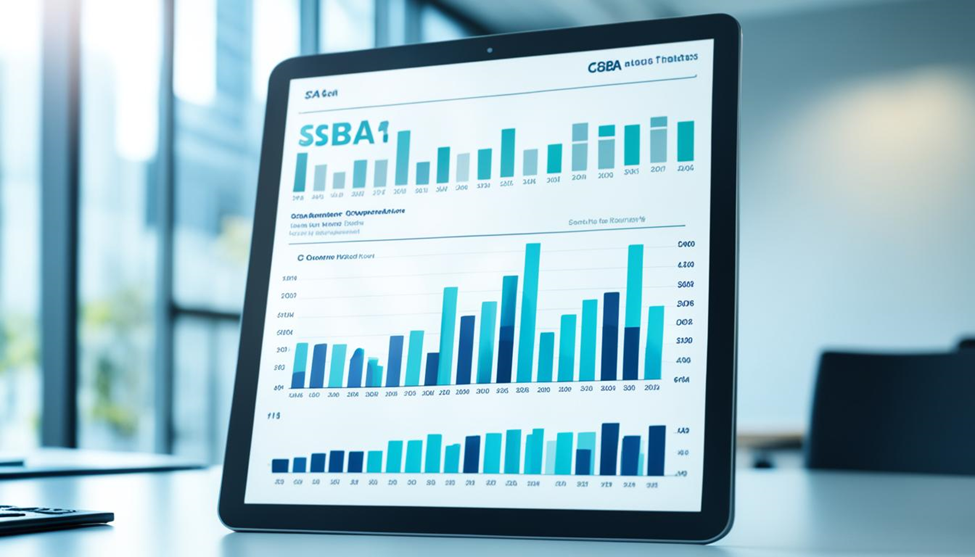The Evolving Landscape: How COVID-19 Has Changed SBA Business Plan Requirements
The Evolving Landscape: How COVID-19 Has Changed SBA Business Plan Requirements
As small businesses navigate the challenges brought about by the COVID-19 pandemic, one key aspect that has undergone significant changes is the Small Business Administration's (SBA) requirements for business plans. In the face of unprecedented uncertainties and economic shifts, it's crucial for entrepreneurs to understand how the landscape of SBA business plan has evolved. But what exactly are these changes, and how do they affect your chances of securing SBA funding or loans?
Key Takeaways:
➡️ COVID-19 has impacted the requirements for SBA business plans.➡️ Understanding the updated standards for funding and loans is crucial for small businesses.
➡️ Financial projections and contingency plans have gained increased importance.
➡️ Adapting your business plan can showcase resilience and adaptability in the face of the pandemic.
➡️ Navigating the SBA loan application process requires tailoring your business plan to meet specific requirements.
Understanding SBA Business Plan Requirements
In this section, we will provide a comprehensive overview of the Small Business Administration's (SBA) business plan requirements. A well-prepared business plan is crucial for securing SBA funding and loans. By understanding and meeting these requirements, you can increase your chances of success and access the financial resources necessary for your small business.
Key Elements of an SBA Business Plan
An SBA business plan should include several essential elements that outline your business model and demonstrate its viability:
Executive Summary: Provide a concise overview of your business, highlighting its unique selling proposition and potential for growth.Market Analysis:Perform comprehensive market analysis to identify your target demographic, competitors, and prevailing market trends.
Products and Services: Describe your offerings and explain how they meet the needs of your target market.
Marketing and Sales Strategy:Develop a marketing and sales strategy detailing your pricing approach, distribution channels, and promotional initiatives.
Organization and Management: Provide information about your company's structure, key team members, and their roles and responsibilities.
Financial Projections: Provide comprehensive financial projections, encompassing detailed income statements, balance sheets, and cash flow forecasts.
Funding Request: Clearly state the amount of funding you need and explain how it will be used to support your business objectives.
Appendix: Include supporting documents such as resumes, licenses, permits, contracts, and any other relevant information.
SBA Funding and Loan Specific Requirements
The SBA offers various funding and loan programs designed to support different types of small businesses. Each program may have specific requirements that you should address in your business plan:
SBA Startup Business Plan: If you are seeking funding for a startup, your business plan should demonstrate the feasibility of your business idea, your market analysis, and a clear strategy for achieving profitability.SBA Business Plan for Small Businesses: For existing small businesses, your business plan should showcase your track record, financial stability, and growth potential.
Business Plan for SBA Loan: If you are applying for an SBA loan, your business plan should provide details about your intended use of funds, how you plan to repay the loan, and your ability to generate sufficient cash flow to meet your financial obligations.
By carefully addressing the specific requirements of each funding or loan program, you can demonstrate your eligibility and align your business plan with the criteria established by the SBA.
The Impact of COVID-19 on SBA Business Plans
In the wake of the COVID-19 pandemic, SBA business plans have undergone significant changes. The uncertain economic landscape has highlighted the importance of robust financial projections and contingency plans when seeking government funding for small businesses. Adapting your business plan to showcase resilience and adaptability has become crucial in the face of these unprecedented challenges.

Increased Importance of Financial Projections
With the ongoing economic uncertainty caused by the pandemic, financial projections have become paramount in SBA business plans. Lenders and funding institutions now require detailed forecasts that demonstrate your business's ability to weather potential future crises. These projections should highlight your business's revenue generation, cost management, and cash flow management strategies.
Contingency Plans as a Response to Uncertainty
Developing strong contingency plans is essential to address the uncertainties arising from the COVID-19 pandemic. These plans should outline how your business will respond to potential disruptions, such as supply chain issues, market fluctuations, and changes in consumer behavior. Including strategies to mitigate risks and navigate challenging situations will give lenders confidence in your business's ability to adapt and thrive in any circumstance.
Adapting Your Business Plan for SBA Loan Applications
When applying for an SBA loan, it is important to align your business plan with the specific requirements outlined by the Small Business Administration. Highlight your business's strengths, unique value proposition, and the potential impact of the loan on your growth and success. Tailor your plan to address the lender's concerns and emphasize how the loan will support your business's sustainability during the pandemic and beyond.
By recognizing the evolving landscape of SBA business plans and understanding the increased importance of financial projections and contingency plans, you can position your business for success. Adaptation, resilience, and a well-crafted business plan are key to securing government funding and navigating the small business loan application process.
Navigating the SBA Loan Application Process
Applying for an SBA loan can be a critical step in securing the necessary funds to fuel the growth and success of your small business. In this section, we will guide you through the SBA loan application process, equipping you with the knowledge and tools needed for a seamless and successful application.
Preparing Documentation
Before diving into the loan application, it's crucial to gather and organize all the necessary documentation. This includes:
👉 A comprehensive and well-prepared SBA loan business plan, tailored to meet the specific requirements of SBA loan applications. This plan showcases your business's financial projections, market analysis, competitive landscape, and growth strategy.👉 Financial statements, including balance sheets, income statements, and cash flow projections, to demonstrate your company's financial stability and ability to repay the loan.
👉 Past tax returns and personal financial statements for all owners with a 20% or more stake in the business.
👉 Resumes of key executives and management personnel, highlighting their qualifications and expertise.
👉 Personal and business credit reports, showing your creditworthiness and financial responsibility.
👉 Legal documents, such as business licenses, permits, contracts, leases, and any other relevant paperwork.
By ensuring you have all the required documentation ready, you'll streamline the application process and avoid unnecessary delays.
The Timeline for Approval
Understanding the timeline for approval is crucial for planning your business's financial needs. While the exact time can vary depending on the complexity of your application, it typically takes between 60 to 90 days for the SBA to review and approve or decline an application.
During the approval process, the SBA assesses your application's eligibility, creditworthiness, ability to repay the loan, and adherence to their loan program guidelines.
After the SBA approves your loan, the funds are disbursed through the lender you worked with during the application process. It's important to note that the disbursement timeline can vary depending on the lender's policies and processes.
Tips for Success
To increase your chances of success with SBA loan applications, consider the following tips:
➡️Thoroughly review and understand the SBA's loan requirements and guidelines to ensure your application meets all the necessary criteria.
➡️Engage the services of a professional business plan writer, like us at Plan Writers, to help you create a comprehensive and persuasive SBA loan business plan that aligns with the program's requirements.
➡️Double-check your application for completeness and accuracy before submission.
➡️Be prepared to provide additional documentation or answer any clarifying questions from the SBA or your lender during the review process.
➡️Establish a good relationship with your lender, maintaining open communication and promptly addressing any requests or inquiries.
By following these tips, you can position yourself for a successful SBA loan application and increase your chances of securing the funding your small business needs.
Conclusion
In conclusion, this article has explored the evolving landscape of SBA business plan requirements in the wake of COVID-19. The pandemic has brought about significant changes in the standards for sba funding and loans, necessitating a thorough understanding of the new guidelines.
By staying informed and adapting your business plan accordingly, you can position your small business for success in these challenging times. It is crucial to highlight the financial projections and contingency plans in your business plan, showcasing resilience and adaptability in the face of uncertainty caused by the pandemic.
Remember, crafting an effective SBA business plan that meets all the necessary requirements is essential for accessing SBA funding business plan and loans. Our team at Plan Writers is here to assist you in creating a compelling business plan tailored to the evolving SBA standards.
Frequently Asked Questions (FAQ)
The COVID-19 pandemic has led to changes in the Small Business Administration's requirements for business plans. The SBA now emphasizes the importance of financial projections and contingency plans to address the uncertainty caused by the pandemic.
An SBA business plan should include an executive summary, market analysis, financial projections, and other essential components. The specific requirements may vary based on the type of SBA funding you are seeking, such as startup loans or loans for small businesses.
To demonstrate resilience in your business plan during the pandemic, it is crucial to highlight your ability to adapt to changing market conditions and potential disruptions. Focus on showcasing contingency plans, alternative revenue streams, and strategies for mitigating risks.
The SBA loan application process requires gathering the necessary documentation, including financial statements, tax returns, and personal information. The timeline for approval can vary, but it is essential to provide a comprehensive business plan tailored to meet the specific requirements of SBA loans.
A professional SBA business plan writing service, like ours at Plan Writers, can help in creating a compelling and effective business plan that meets all the necessary SBA requirements. We have expertise in navigating the evolving landscape and can provide guidance to increase your chances of success in obtaining SBA funding.

